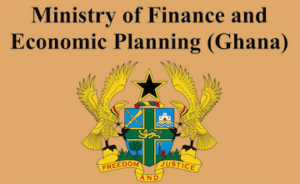Finance Ministry to sanction Specified Entities for non-compliance to PFM, SIGA Act
 The Ministry of Finance says it will apply appropriate sanctions and penalties to Specified Entities for non-compliance to the Public Finance Management (PFM) and the State Interest Governance Authority (SIGA) Acts.
The Ministry of Finance says it will apply appropriate sanctions and penalties to Specified Entities for non-compliance to the Public Finance Management (PFM) and the State Interest Governance Authority (SIGA) Acts.
The Ministry will further recommend the removal of Governing Boards that flout the Acts.
The Ministry further stated that it would not consider requests for government support from Specified Entities that failed to meet the reporting requirements specified in the PFM Act, PFM Regulations and SIGA Act.
Currently, there are 183 Specified Entities in the Government’s records consisting of 51 State-Owned Enterprises (SOEs), 43 Joint Venture Companies (JVC) and 89 Other State Entities (OSEs).
As of the end of December 2021, only 31 out of 51 SOEs, representing 61 per cent, 22 out of the 89 OSEs representing 25 per cent, and 22 out of 43 JVCs, representing 51 per cent, had submitted audited financial statements for the year 2020 to the Finance Ministry.
Dr John Ampontuah Kumah, Deputy Minister of Finance, speaking on behalf of Mr Ken Ofori-Atta, Minister of Finance at the 2022 Policy and Governance Forum, said the returns on government’s investments from Specified Entities were not positive as expected.
The 2022 Policy and Governance Forum, organised by SIGA and other partners, was on the theme: “Improving the Performance of Specified Entities: Leadership and Technology.”
The Forum, which brought together Board Members of Specified Entities, discussed the operational efficiency and profitability of Specified Entities, expanding the national accounts to include SOEs and JVCs, among other governance issues.
Dr Kumah said the 2020 State Ownership Report Analysis had revealed that the performance of Specified Entities had largely trended downwards.
SOEs, he said, consistently posted aggregate net losses from the 2015 volumes of GH¢2.1 billion to 2020, which recorded an amount of GH¢5.3 billion losses – a compound annual growth of 16.2 per cent.
Among the 44 SOEs and 16 JVCs scored in the draft 2020 SOEs report, 50 per cent of SOEs and 63 per cent JVCs reported losses, and of the 56 SOEs covered, 34 per cent also posted deficits.
The Deputy Finance Minister said it was regrettable that while Specified Entities, especially SOEs, held significant assets, their performance and effectiveness left much to be desired.
Therefore, he said, in the short to medium term, the Government expected to implement a financing policy to Specified Entities, particularly to SOEs, OSEs.
The financial policy, he said, was anchored on three main principles; requirement for specified entities to operate on the strengths of their balance sheet, capitalisation of new specified entities to be funded only through the sale of non-strategic assets and not drawn from task revenue added to the public debt.
“Also, a clear distinction of cost of SOEs and JVCs purely commercial activities from those incurred in exercising their public policy obligations, that is quasi-fiscal activities, the latter will be reimbursed according to the dictates of the State Ownership Policy subject to the government’s approval,” he added.
Those initiatives, Dr Kumah maintained, would not amount to much without exemplary leadership., and therefore called on the newly inaugurated Board Members of State-Owned Enterprises to leverage appropriate tools of technology to improve their management and operations.
He called on the Boards to adopt business models that enhance productivity, commercial viability and financial sustainability, adding that effective leadership was vital in breaking the inefficient state companies’ narrative.
Mr Edward Boateng, Director General, SIGA, said interactions with Specified Entities and a review of available documents, had revealed the challenge of lack of policy coherence among state institutions.
He said conflicting policies and actions across government agencies, departments and Specified Entities had blurred the common goal and resulted in “needless turf wars, duplication of efforts, delays and high cost of doing business” among others.
Mr Boateng said streamlining existing policies or introducing new clear ones that helped to address those and other legacy issues, would be an important first step to sharpen operational efficiency and effectiveness and help secure investment.
He reiterated calls on Specified Entities to leverage Ghana’s digital transformation agenda to harness the potential of the entities, saying “Ghana is going digital and we must be part of it.”
SIGA was established on June 7, 2019, under the SIGA Act 2019 (ACT 990) with the mandate to oversee and administer the performance of SOEs, JVCs, and OSEs.
Source: GNA
